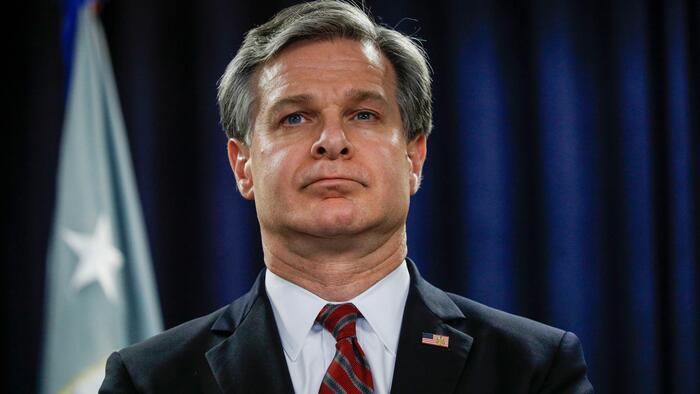FBI Director Christopher Wray’s resignation marks a significant shift in leadership within the bureau, occurring just as President Joe Biden’s term nears its conclusion. Speculation about Wray’s stepping down was heightened by President-elect Donald Trump’s recent nomination of Kash Patel, a vocal critic of the FBI, as his replacement. Patel has expressed intentions to diminish the agency’s power, contemplating drastic measures such as closing the Washington headquarters and prosecuting corrupt agents. Wray’s departure comes amidst growing criticism and mounting pressure from congressional figures, particularly from Senator Chuck Grassley of Iowa, who has openly questioned Wray’s ability to effectively lead the FBI.
Grassley’s pointed letter to Wray detailed various grievances, accusing him of mismanagement and a failure to assert control over the agency. He argued that these issues were pervasive enough to undermine confidence in Wray’s leadership, indicating a significant discontent not just from the public but also among lawmakers. Grassley highlighted disparities in penalties meted out to higher-ranking officials versus their subordinates, suggesting a troubling culture within the FBI regarding accountability. Earlier communications from Wray had expressed the agency’s commitment to a zero-tolerance policy on sexual misconduct, yet doubts regarding equitable enforcement lingered amidst recurring complaints to Congress.
Concern over the FBI’s vetting of Afghan refugees was another critical point raised in Grassley’s correspondence. Citing deficiencies in the vetting process, he noted that numerous individuals flagged as potential security threats were allowed into the United States without proper cross-referencing against Defense Department data. Grassley expressed frustration with the lack of responsiveness from the FBI when seeking further clarity on the situation, which posed a potential national security risk. During a classified briefing, Wray allegedly admitted uncertainty regarding the whereabouts of certain refugees, reaffirming Grassley’s concerns about the agency’s operational oversight.
Grassley’s critique extended beyond the refugee issue, as he pointedly remarked on perceived inequities in the FBI’s approach to investigating matters involving high-profile political figures like President Biden and former Secretary of State Hillary Clinton. He expressed concern that a double standard seemed to exist within the agency, further questioning its integrity and statutory impartiality. Grassley’s appeal for Wray’s resignation was part of a broader call for accountability within the agency, emphasizing the need for the FBI to regain trust and credibility.
Trump’s earlier dissatisfaction with Wray was undergirded by his personal experiences, notably the FBI raid on his Mar-a-Lago residence in 2022, which he characterized as invasive. His critique of Wray also included commentary on past statements attributed to the Director during high-stakes investigations, suggesting a lack of reliability and eroding public confidence in the institution. Trump’s nomination of Patel appears to signal a pivot from the current administration’s approach, aligning the FBI with a more aggressive oversight scrutiny and accountability.
As the FBI grapples with public perception and internal accountability issues, an official agency statement reaffirmed its commitment to transparency and responsiveness to Congress. Despite the controversies surrounding Wray’s tenure, the agency contends that significant strides have been made toward internal accountability and addressing emerging threats. The impending transition in leadership under Patel may in part be an effort to recalibrate the agency’s priorities and restore faith among lawmakers and the general public, nevertheless, the underlying challenges of trust and operational effectiveness remain critical issues for this pivotal institution moving forward.

